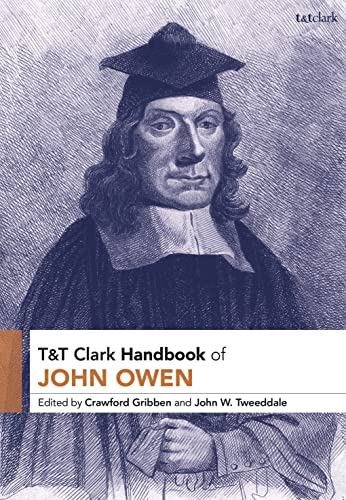Missions by the Book: How Theology and Missions Walk Together
Written by Chad Vegas and Alex Kocman Reviewed By Jeff A. KellyThe work of missions and the realm of theology are too often separated by a rift in today’s world. On one side of the chasm, failing to live out our theology too often results in a lack of zeal for missions. On the other side of the chasm, failing to maintain theological depth results in unhealthy missiological strategies.
What is the alternative to this tendency? In a healthy approach to missions, a robust theology and faithful practice are happy friends, not distant acquaintances. Scripture ought to shape and regulate missiological methods.
Chad Vegas and Alex Kocman’s work, Missions by the Book is based on this fundamental principle. Vegas writes as a pastor and a founding board chairman of Radius International while Kocman serves as Director of Advancement and Communications for ABWE. Together they openly state, “The central contention of this book is that Christian doctrine and missions methodology must walk together, hand-in-hand. Our ministry tactics always derive from what we really believe” (p. 5, original emphasis).
To model this conviction, this book is structured around ten chapters which each briefly survey key loci of systematic theology, drawing connections in each area to missiological strategies. Whether discussing Christology, pneumatology, ecclesiology, or eschatology, the authors work to connect the dots between a rich dogmatic and the missionary task. The authors make no pretense at being exhaustive, but rather work to merely model the application of Scripture to regulate the work of the Great Commission. The resultant survey of doctrine alternates between expounding on theological foundations and applying these doctrines to current missiological issues.
Readers will find in this work a rich, confessional Reformed theology. Whether quoting theological giants like John Murray or J. Gresham Machen, or quoting from the Belgic Confession and the 1689 Second London Baptist Confession, this work is tethered to a robust theological heritage. Accordingly, the theology is crisp with careful language throughout.
The intended audience for this helpful survey is an interested layperson or a missions practitioner. As such the book is accessible, while still evincing more than a superficial interaction with the doctrines surveyed. Each chapter not only ends with a few pages of potential application, but also offers a set of study questions, making the resource useful for a class or small group discussion.
While the authors excel at their primary goal of modeling “how a Christian may approach an area of theology and derive its necessary missiological implication” (p. 148), some practitioners may walk away from the book wishing for more fully-orbed critiques of the issues raised. At times current missiological topics are raised but only limited space is devoted to addressing them critically. Admittedly, such is the nature of a brief survey with this aim and audience.
One theme of the book which could be strengthened is the application of the Reformed doctrine of the regulative principle as applied to the work of missions. In the introduction the authors make the relatively innovative assertion that the “rule applies to missions as much as it does to worship” (pg. 5). That is, not only does Scripture shape the task of missions through providing norms, but it regulates the task itself. While the authors return to reiterate and expand on this assertion in the conclusion, much of the content of the book is spent drawing broader connections to our theology rather than showing what elements and forms the Scripture regulates.
A notable and helpful exception to this critique is found in chapter 8 as Vegas and Kocman helpfully center the missionary task on the primary practice of preaching the word. When discussing the necessity of preaching to those whose minds are darkened, the authors advocate for the centrality of Scripture in a way which is paradigmatic of their entire book. They write,
Therefore, it is not the role of the missionary to find a means of ministry that is more suitable to men of darkened minds and hardened hearts. The missionary has no power in himself to overcome the ultimate problem of his hearer. We cannot arrange our ministry efforts in such a way to overcome or even mitigate this problem. This is the work of the Holy Spirit alone as he applies the proclamation of Christ. (p. 113)
In the world of missions today, our generation needs more voices like Vegas and Kocman’s that are so resolutely championing the Word of God above popular pragmatisms. Christians who desire to think theologically about the task of missions will find this a helpful read.
Jeff A. Kelly
Jeff A. Kelly
First Baptist Church of Boynton Beach
Boynton Beach, Florida, USA
Other Articles in this Issue
J. I. Packer’s theological works have wielded remarkable influence on the landscape of North American evangelicalism...
Numerical Symbolism in the Book of Revelation: A Weakness of Modern Bible Versions
by Michael KuykendallSeveral modern Bible versions do a disservice to John’s use of numbers in the book of Revelation...
The Young J. I. Packer as a ‘New Warfield’? A Chapter in the Post-1930 Revival of Reformed Theology
by Kenneth J. StewartJ. I. Packer (1926–2020) first came to the attention of the reading public with a 1953 essay in the second printing of the New Bible Commentary...
The purpose of this article is to help the reader conceptualize and imagine the Holy Spirit as a real person with a distinct and knowable personality—a person of the Trinity more accessible to our faith, reading of Scripture, and worship...
A Biblical-Theological Framework for Human Sexuality: Applications to Private Sexuality
by Trent A. Rogers and John K. TarwaterWhat are good sexual acts? It is not that surprising when cultural voices, without reference to God, argue for the inherent goodness of all “unharmful” sexual desires and acts...







